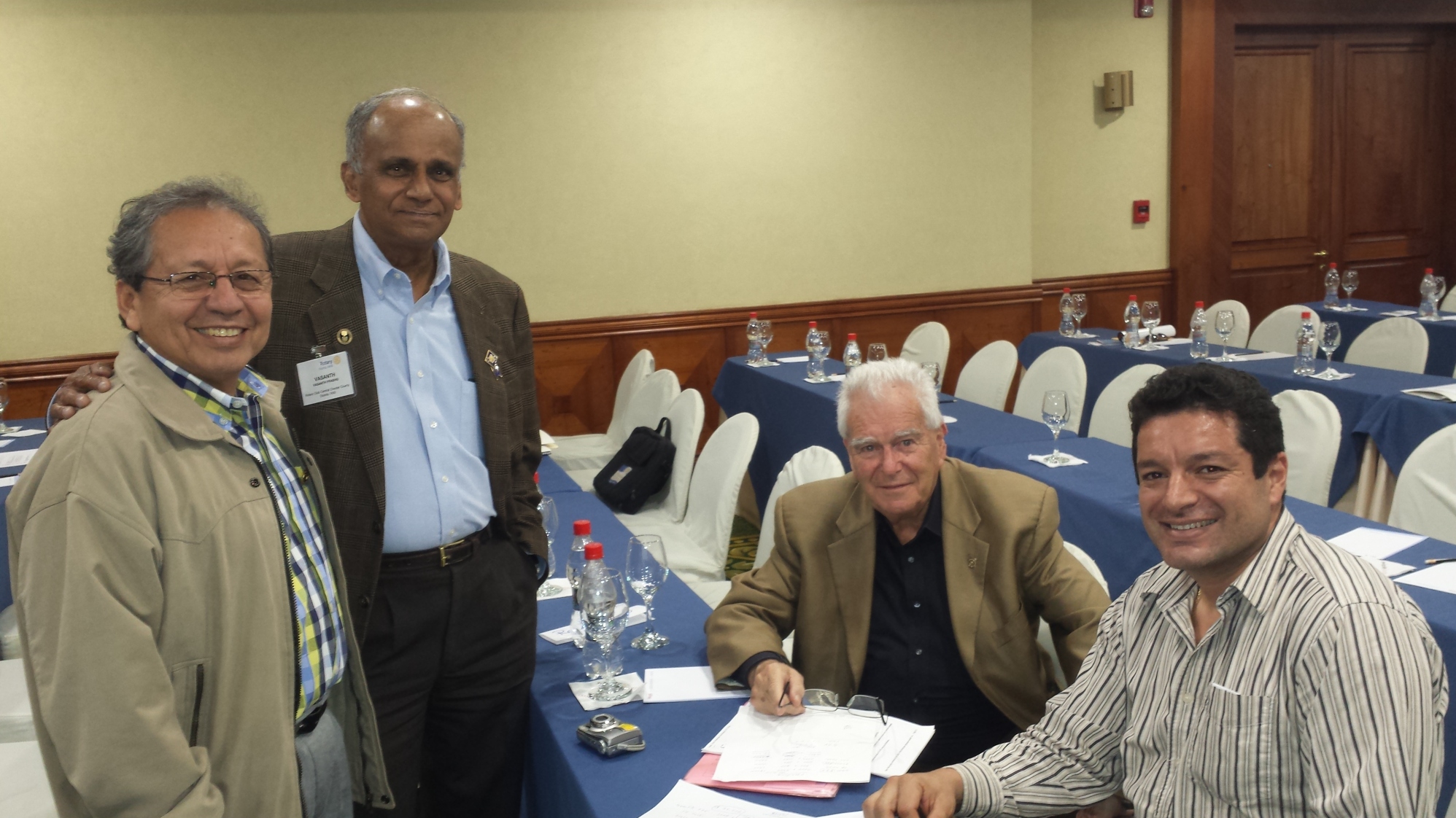The District 4140 Project Fair is scheduled for March 29th-30th in Guadalajara. The article that follows illustrates the benefits of participating in a project fair.
Ecuador Project Fair leads to a long-term international partnership
Posted on January 22, 2019by rotary service
By Azka Asif, Rotary Service and Engagement Staff
Dr. Vasanth Prabhu from the Rotary Club of Central Chester County (Lionville) in the United States and Galo Alfonso Betancourt Criollo from the Rotary Club of Santa Rosa in Ecuador have been working together on humanitarian projects for over ten years. They first met at the District 4400 (Ecuador) Project Fair, an annual event where local Rotary clubs exhibit their projects to international visitors. Visitors have the opportunity to see first-hand the community needs, as well as experience the local culture while cultivating new friendships with local Rotary members.
We asked Vasanth and Galo to share their experience forming a relationship and implementing projects over the years.

Vasanth, what interested you about the project fair in Ecuador?
I was new to Rotary when a flyer containing information about the first District 4400 (Ecuador) Project Fair in 2004 was sent to our club. I wanted to learn more about the fair, but also had a special interest to visit Ecuador since my youth. I had read about the Galapagos Island, its history, the tortoises and other flora and fauna of the region during my teen years. I made a promise to myself that I would like to see the Galapagos when I grew up. One of the added benefits of participating in the project fair was a group tour to the Galapagos.
I have now attended all but one project fair in Ecuador. The fair has given me a chance to meet Rotarians from different parts of the world and interact with them on service projects.
Galo, how long have you been working with Vasanth and how was the relationship formed?
We met our friend Vasanth in 2008 during our first time participating in the Ecuador fair where a good friend of our club, Past District 4400 Governor Juanito Prinz, introduced us. Thanks to Vasanth’s support, we have carried out many service projects benefiting our communities over the last ten years.
I believe that the relationship, not only with Vasanth but with members of the Rotary Club of Chester County Central (Lionville), was formed through their many visits to our projects in Ecuador. The relationship has been strengthened year after year thanks to the mutual trust that has been built and by working together in service.
Vasanth, how did you select projects to support?
After learning about the exhibited projects and networking with Rotarians from different parts of the world, in consultation with Past District Governor Juan Prinz and members of my Rotary club, we decided to support various projects in rural areas of Ecuador that focus on clean water, health and education. Also, we wanted to partner with newer clubs in District 4400 who had not implemented any service projects. The Rotary Club of Santa Rosa had recently been chartered when we first partnered with them.
The current project we are working on for biodigesters interested us because of the importance of clean water in daily life. I met with Galo along with his fellow club members and discussed the project with advice from Past District Governor Prinz. The proposal was then presented to my club members and my District 7450’s leadership team to review and approve funding — both cash and DDF. We chose to move forward with this global grant project since we have a good track record of carrying out service projects with the Rotary Club of Santa Rosa.
Galo, can you briefly explain the biodigesters global grant project?
The project consists of replacing existing septic tanks in three rural communities with wastewater treatment plants or self-cleaning biodigesters to promote a healthy environment, improve the quality of life for community members and protect the water quality of an adjacent river. The communities directly benefited are El Playón, Remolino and Aguas Verdes where 368 people live, made up of 72 families and the project indirectly impacts the city of Santa Rosa’s 50,000 members as the river is a water source for them.
How did your clubs work together before the global grant application was submitted? Did you need to overcome any challenges?
Vasanth: I was the primary international contact for the project with two other members from my club serving on the project committee. I was in frequent communication with Galo, who was the primary host contact. The global grant application was drafted by Galo and sent to me for review. Communication was not a problem, we used Google Translate which helped ease the language barrier. Our club has worked on projects in Brazil (Portuguese) and Madagascar (French), Google Translate has always helped us with our communications. Past District Governor Prinz, who is fluent in English, Spanish and German, was a great resource for us throughout the project. We did not come across any other problems throughout the application process or implementing the project.
Galo: Thankfully, in this modern world where communication is very advanced, it allowed us to interact with Vasanth very closely in the planning and implementing process while having ownership of each of the projects we have worked on, which has allowed for a greater exchange of information and timely decision making. We come from different cultures and customs, but this has not been an impediment to working together since we have both share a similar passion for service.

